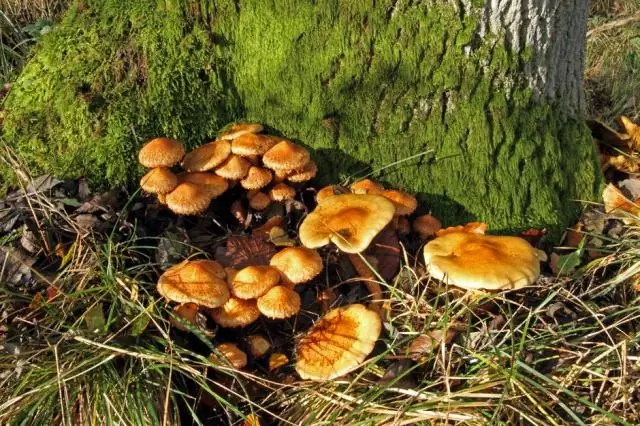
Table of contents:
- Author Bailey Albertson [email protected].
- Public 2023-12-17 12:53.
- Last modified 2025-01-23 12:41.
Why fungal diseases affect plants every year

Experienced summer residents know that fungal diseases can attack the garden, regardless of what precautions and preventions are used. There are several reasons for this problem, and most of them can be dealt with.

Spores hibernate in the soil
Spores of pathogenic fungi are viable and resistant to the negative influences of the external environment, due to which they can persist and winter in the soil, on plant remains and fallen leaves. Some gardeners advise to deal with this problem with annual digging of the site, but, unfortunately, this is not the most ideal way. Some of the spores sink deep into the ground, and those that remain on the surface will again be ready to attack plants in the spring.
To reduce the risk of contamination of the future crop, form narrow beds (no more than 1-1.5 m wide), which will thoroughly aerate and process the soil. It is important not to thicken the planting, as this creates a suitable environment for the development of fungal diseases. Keeping crop rotation helps protect plants. If you plant the same vegetable crop in the garden no more than once every 3-5 years, the mycelium will be less likely to attack it.
Spores are carried by the wind
Whatever preventive measures you use to combat the fungus, there is always a chance that new spores brought by the wind will appear on the site. They can "fly in" from neighboring uncultivated vegetable gardens and abandoned areas. Even your own plot can become a source, if processing was carried out in one part of it, but not in the other, because the fungus lives not only in the ground, but also on tools and summer cottages.
Insects, animals, as well as rain and people themselves become carriers of fungal spores, if they do not comply with sanitary standards in the process of gardening. But this does not negate the need for regular treatments of the site with suitable fungicides, because protective agents help reduce the risk of contamination of the plantings with fungal infections.
Improper use of fungicides
Fungicide preparations used to eliminate fungal diseases often do not help preserve the entire crop. This is due to the fact that inexperienced summer residents do not follow the rules for breeding the selected drug, as well as the frequency and timing of processing vegetable crops. Another problem is the wrong choice of the drug. Some gardeners use any means that say "fungicide", not considering that they differ in composition, type of action and properties.
If you choose the right fungicide and take into account the requirements for its use, including the necessary conditions (suitable humidity, temperature, compatibility with other agents and the stage of development of the fungus), then the treatment will be effective. Change the agent used from time to time, because the fungus "gets used" to it, and the effect gradually decreases.
Ineffective remedies

Many summer residents prefer folk remedies to chemicals, considering them less dangerous for plants and their own health. Therefore, herbal decoctions, a solution of soap and ash, and medicines are often used to fight fungal infections. But most folk recipes have little or no effect on fungal spores.
The desired effect can be achieved only if the agent is used at an early stage of the development of the disease, but in this case, the effect of the decoction or infusion will be short-lived. The same can be said for various biological products. They do not harm the environment and human health, but, unfortunately, they do not completely eradicate the problem. Therefore, it is better to abandon folk remedies and biological preparations, replacing them with a properly selected fungicide, the effect of which will be more noticeable.
Despite the fact that there is no ideal remedy that could completely cleanse the area from the fungus, it is important to remember to comply with agrotechnical and sanitary standards, as well as regularly carry out prevention and choose resistant varieties of vegetables. This will help limit the spread of the fungus and reduce its activity.
Recommended:
Treatment Of Footwear From Fungus: How And How To Disinfect For Fungal Diseases + Photos And Videos

Disinfection of shoes for the destruction of fungus: folk recipes for processing and professional means: solutions, sprays, ultraviolet dryers. Video
How To Get Rid Of Crickets In An Apartment Or House From Where They Can Appear In Your Home

Ways to get rid of crickets in a private house and apartment. Prevention of the reappearance of insects
Why You Can't Wet Your Flu Shot And Other Diseases

Why it is impossible to wet the injection site. Effects of bathing after immunization
Why Goosebumps Appear, Run Over The Head, Legs And Arms

The mechanism of feeling goosebumps. What can be dangerous for a person a symptom of goose bumps
Why Roses Don't Bloom And How To Help Plants, Reviews

Why roses may not bloom, on what it depends. How to help them. Reviews
